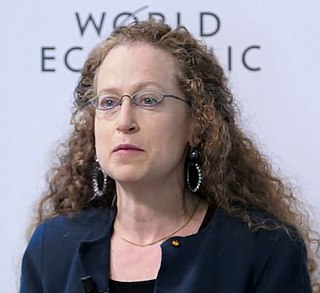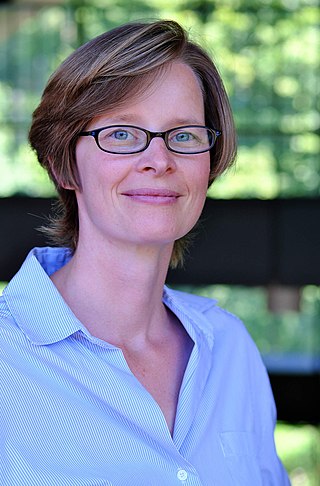The Association for Computing Machinery (ACM) is a US-based international learned society for computing. It was founded in 1947 and is the world's largest scientific and educational computing society. The ACM is a non-profit professional membership group, claiming nearly 110,000 student and professional members as of 2022. Its headquarters are in New York City.

Arthur John Robin Gorell Milner, known as Robin Milner or A. J. R. G. Milner, was a British computer scientist, and a Turing Award winner.

Samson Abramsky is Professor of Computer Science at University College London. He was previously the Christopher Strachey Professor of Computing at the University of Oxford, from 2000 to 2021. He has made contributions to the areas of domain theory, the lazy lambda calculus, strictness analysis, concurrency theory, interaction categories, geometry of interaction, game semantics and quantum computing. More recently, he has been applying methods from categorical semantics to finite model theory, with applications to descriptive complexity.
Multimodal interaction provides the user with multiple modes of interacting with a system. A multimodal interface provides several distinct tools for input and output of data.

The College of Computer Studies (CCS) is one of the eight colleges of De La Salle University. It was established in 1981 as the Center for Planning, Information, and Computer Science offering only a Bachelor of Science degree in Computer Science. The department was formally declared as a college in 1984. In 1990, the college was transferred to its new building, the INTELLECT Building, which was eventually renamed as the Gokongwei Building. In 1996 the college was granted semi-autonomous status along with the Graduate School of Business which led to the establishment of De La Salle-Professional Schools, Inc. The college became a part of De La Salle Professional Schools but later transferred back to the university.

Yorick Wilks FBCS, a British computer scientist, is emeritus professor of artificial intelligence at the University of Sheffield, visiting professor of artificial intelligence at Gresham College, Former senior research fellow at the Oxford Internet Institute, senior scientist at the Florida Institute for Human and Machine Cognition, and a member of the Epiphany Philosophers.

Justine M. Cassell is an American professor and researcher interested in human-human conversation, human-computer interaction, and storytelling. Since August 2010 she has been on the faculty of the Carnegie Mellon Human Computer Interaction Institute (HCII) and the Language Technologies Institute, with courtesy appointments in Psychology, and the Center for Neural Bases of Cognition.
The Special Interest Group on Computer–Human Interaction (SIGCHI) is one of the Association for Computing Machinery's special interest groups which is focused on human–computer interactions (HCI).
The Conference on Mobile Human-Computer Interaction (MobileHCI) is a leading series of academic conferences in Human–computer interaction and is sponsored by ACM SIGCHI, the Special Interest Group on Computer-Human Interaction. MobileHCI has been held annually since 1998 and has been an ACM SIGCHI sponsored conference since 2012 The conference is very competitive, with an acceptance rate of below 20% in 2017 from 25% in 2006 and 21.6% in 2009. MobileHCI 2011 was held in Stockholm, Sweden, and MobileHCI 2012 which was sponsored by SIGCHI held in San Francisco, USA.
Susanne Boll is a Professor for Media Informatics and Multimedia Systems in the Department of Computing Science at the University of Oldenburg, Germany. Boll is a member of SIGMM of the ACM and is a member of the board at the research institute OFFIS. She founded and directs the HCI Lab at the University of Oldenburg and OFFIS.

Human–computer interaction (HCI) is research in the design and the use of computer technology, which focuses on the interfaces between people (users) and computers. HCI researchers observe the ways humans interact with computers and design technologies that allow humans to interact with computers in novel ways. A device that allows interaction between human being and a computer is known as a "Human-computer Interface (HCI)".

Eric Joel Horvitz is an American computer scientist, and Technical Fellow at Microsoft, where he serves as the company's first Chief Scientific Officer. He was previously the director of Microsoft Research Labs, including research centers in Redmond, WA, Cambridge, MA, New York, NY, Montreal, Canada, Cambridge, UK, and Bangalore, India.

Barbara J. Grosz CorrFRSE is an American computer scientist and Higgins Professor of Natural Sciences at Harvard University. She has made seminal contributions to the fields of natural language processing and multi-agent systems. With Alison Simmons, she is co-founder of the Embedded EthiCS programme at Harvard, which embeds ethics lessons into computer science courses.

Vicki Hanson FACM FRSE FBCS, is an American computer scientist noted for her research on human-computer interaction and accessibility and for her leadership in broadening participation in computing.

Maja Pantić is a Professor of Affective and Behavioural Computing at Imperial College London and an AI Scientific Research Lead in Facebook London. She was previously Professor of Affective and Behavioural Computing University of Twente and Research Director of the Samsung AI lab in Cambridge, UK. She is an expert in machine understanding of human behaviour including vision-based detection and tracking of human behavioural cues like facial expressions and body gestures, and multimodal analysis of human behaviours like laughter, social signals and affective states.

Jacob O. Wobbrock is a Professor in the University of Washington Information School and, by courtesy, in the Paul G. Allen School of Computer Science & Engineering at the University of Washington. He is Director of the ACE Lab, founding Co-Director of the CREATE center, and a founding member of the DUB Group and the MHCI+D degree program.
Yvonne Rogers is a British psychologist and computer scientist. She serves as director of the Interaction Centre at University College London. She has authored or contributed to more than 250 publications. Her book Interaction Design: Beyond Human-Computer Interaction written with Jenny Preece and Helen Sharp has sold more than 200,000 copies worldwide and has been translated into six other languages. Her work is described in Encounters with HCI Pioneers: A Personal History and Photo Journal.
Joëlle Coutaz is a French computer scientist, specializing in human-computer interaction (HCI). Her career includes research in the fields of operating systems and HCI, as well as being a professor at the University of Grenoble. Coutaz is considered a pioneer in HCI in France, and in 2007, she was awarded membership to SIGCHI. She was also involved in organizing CHI conferences and was a member on the editorial board of ACM Transactions on Computer-Human Interaction.

Peter William McOwan was a Professor of Computer Science in the School of Electronic Engineering and Computer Science at Queen Mary, University of London. His research interests were in visual perception, mathematical models for visual processing, in particular motion, cognitive science and biologically inspired hardware and software and science outreach.

Vera Demberg is a German computational linguist and professor of computer science and computational linguistics at Saarland University.












